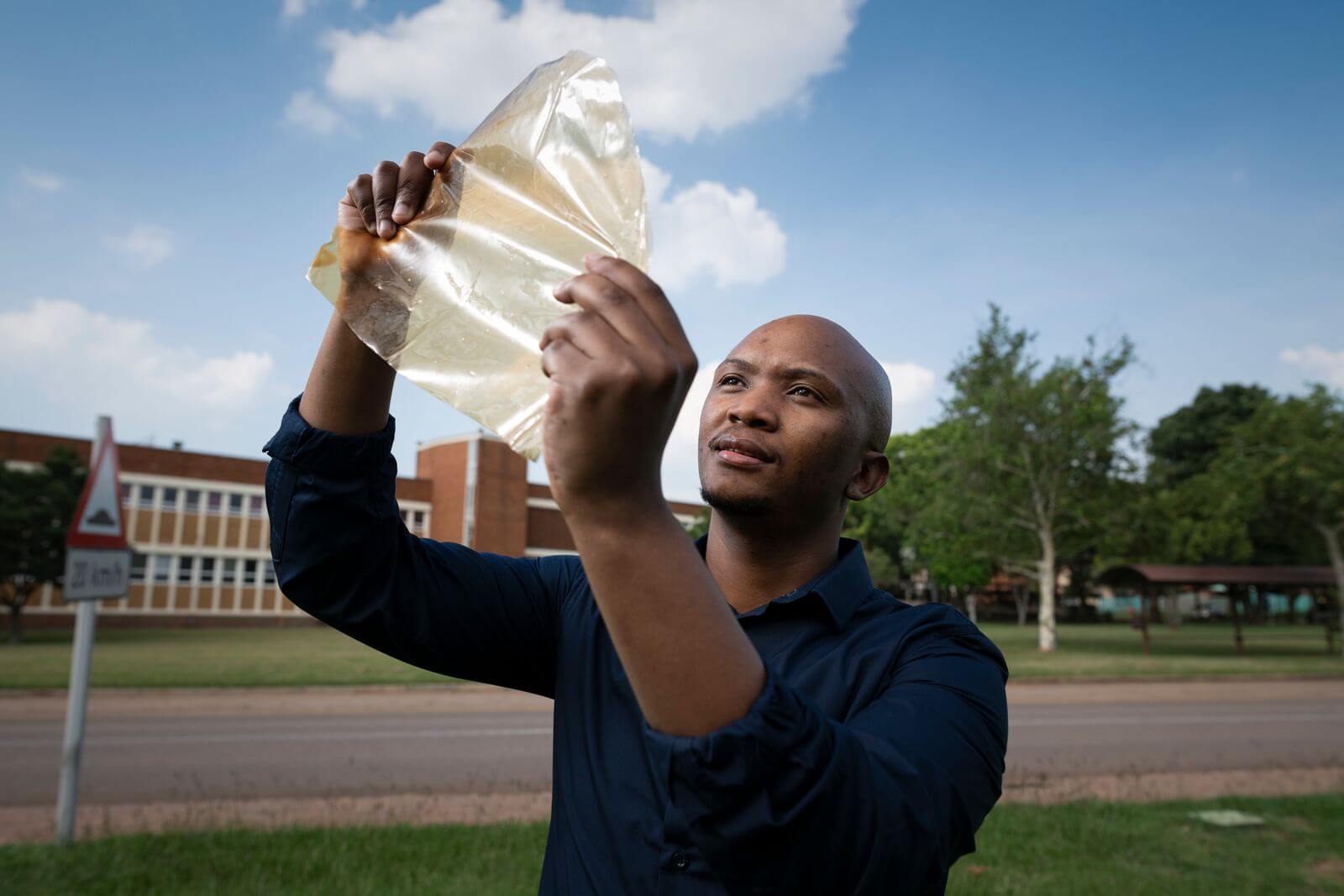The biodegrading process of currently available bioplastics can take from three to six months, while Dissolv Bioplastic biodegrades in roughly 61 days. It is designed to dissolve in water within 36 to 72 hours depending on the product – straws, cutlery, or packaging. It is also compostable, capable of being broken down into its natural elements without becoming toxic like its synthetic counterparts. This process does not require specialised conditions, and the result is a product similar to petrochemically-derived plastics, which can be used in the manufacturing processes of numerous industries, including electronics, cosmetics and textiles.
Chemical engineer Tshepo Mangoele developed Dissolv Bioplastic after two years of experimenting with waste biomass to manufacture different products.
The African continent is no different from the rest of the world when it comes to the environmental threat posed by plastics. Globally, roughly 50% of single-use plastics end up in the oceans. Landfills are continuously expanding with plastic waste products that do not biodegrade. There are comparatively few African commercial composting facilities, and fewer companies developing affordable bioplastic products. Mangoele says the result is recycling on a small scale, with around 8% of all plastics produced being recycled. Dissolv Bioplastic seeks to solve this problem with a product that is price competitive with conventional plastics and will help eliminate land and sea pollution.
Though the product is at pilot phase, one of Africa’s largest packaging distributors has already approached Dissolv Bioplastic to distribute their product across the continent.
Dissolv Bioplastic is nearing the end of its R&D phase and will now be reformulated to suit applications in the electronics, cosmetics, and medical device industries. Pilot projects to produce cutlery, films and straws are being launched at the Council for Scientific and Industrial Research (CSIR) in South Africa this year, where the bioplastic is being developed.

“Through our potential merchant wholesaler, the distribution of our product will be done throughout most of the continent. We are also looking at selling the bioplastic pellets to companies using conventional plastics to make other products, thus increasing our product scope.”
Tshepo Mangoele, Dissolv Bioplastic


